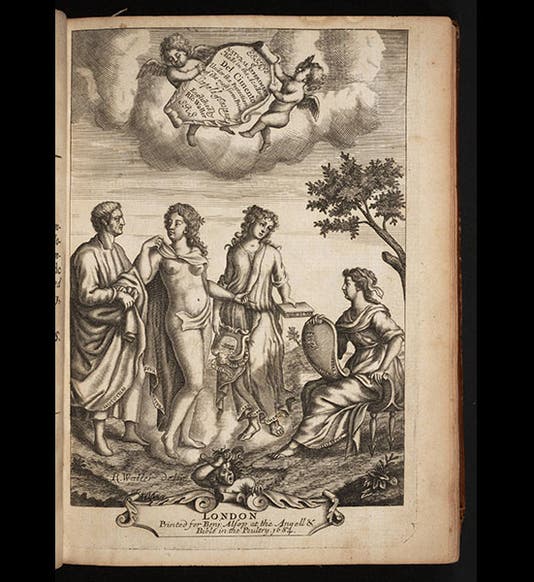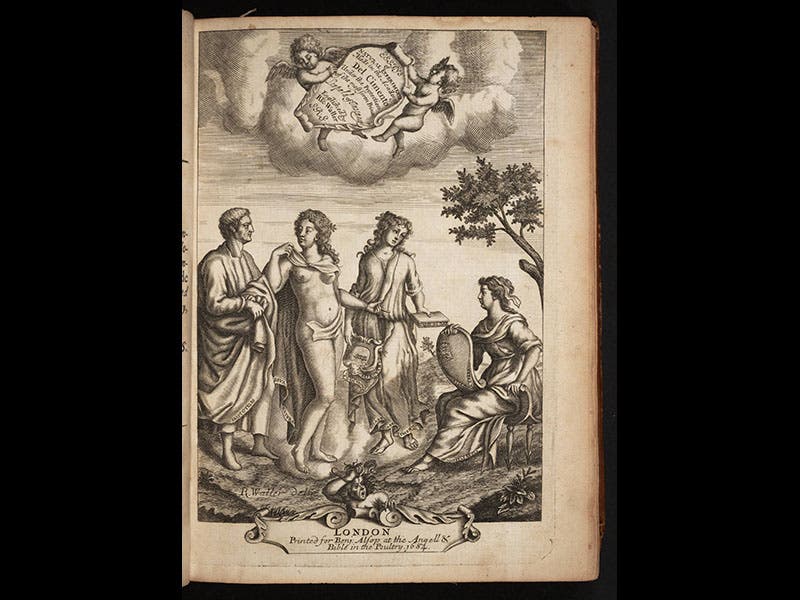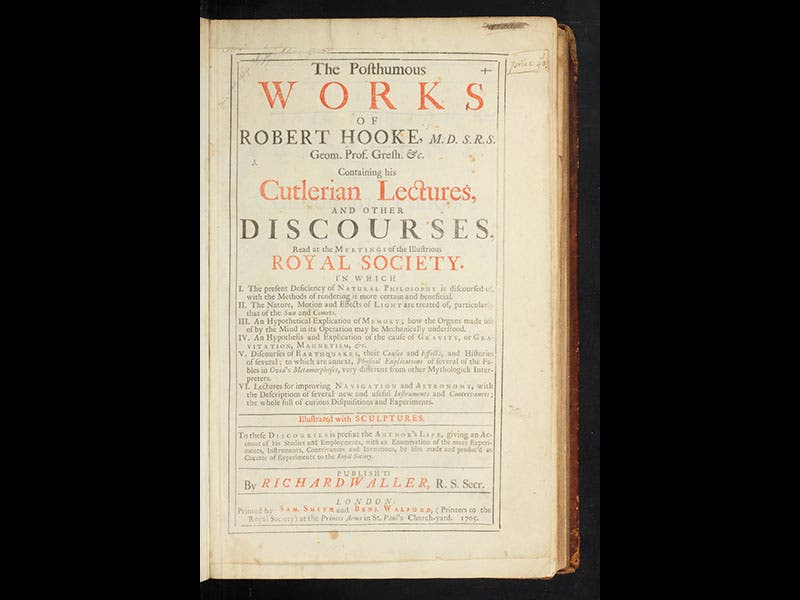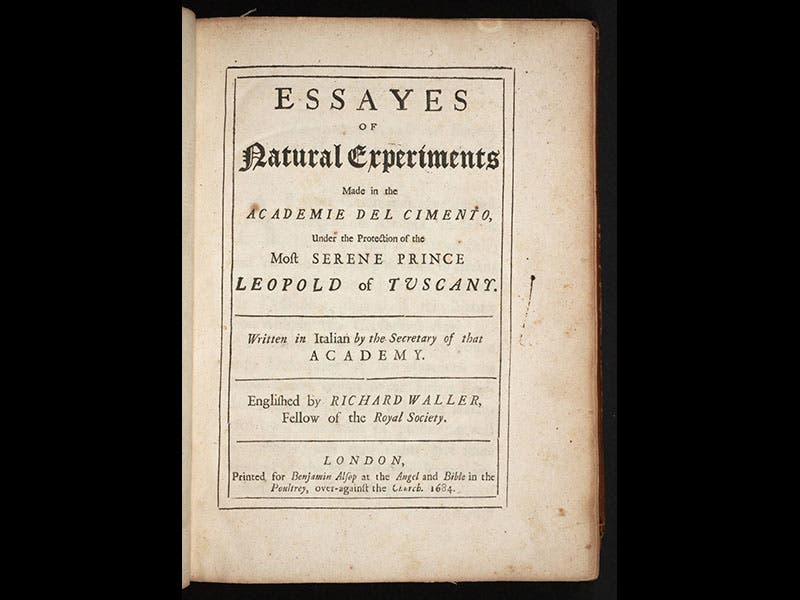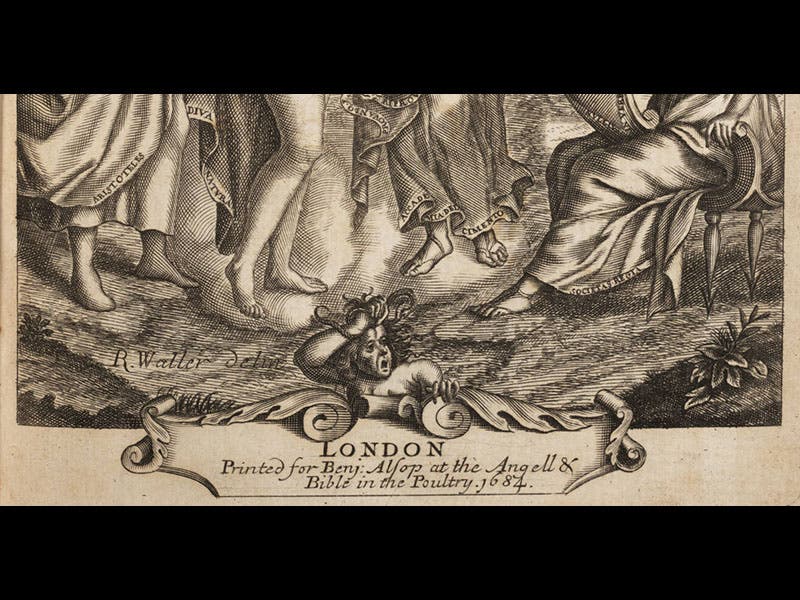Scientist of the Day - Richard Waller
On Jan. 13, 1715, the Royal Society of London received notice that Richard Waller, their long-time secretary, had died. It is the only date we have to celebrate Waller, since his birth and death dates are unknown. Waller was a talented naturalist, illustrator, editor, and translator, and he was associated with the Royal Society from 1680 on. He was a good friend of Robert Hooke, which was no mean feat, as Hooke could be difficult to get along with, and Waller is perhaps best known for executing Hooke’s estate after Hooke’s death in 1703, and for publishing Hooke’s Posthumous Works (1705; see second image above), which contains, among other things, Hooke’s ground-breaking lectures on the organic origin of fossils, as well as a biography of Hooke by Waller.
But Waller engaged in numerous projects on his own. In 1683, Waller translated the Saggi of the Cimento Academy from Italian into English. The Accademia del Cimento was an early scientific society, meeting in Florence from 1657 to 1667, and the Saggi, published in 1667, described many of the experiments they had performed. Waller’s translation was published in 1684 as Essays of Natural Experiments (third image). Waller also designed the engraved title page for the volume (first image). It has a rather clever iconographical message, depicting divine Nature, doubling as naked Truth, pointing Aristotle (representing traditional natural philosophy) in the direction of the new experimental path being forged by the Cimento Academy (personified by the 2nd figure from the right) and the Royal Society (the figure at far right). The engraving is signed, “R. Waller delin.”–drawn by Richard Waller (fourth image).
Dr. William B. Ashworth, Jr., Consultant for the History of Science, Linda Hall Library and Associate Professor, Department of History, University of Missouri-Kansas City. Comments or corrections are welcome; please direct to ashworthw@umkc.edu.

